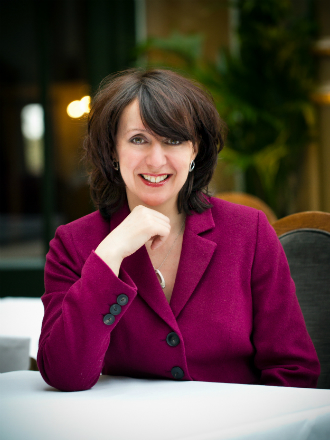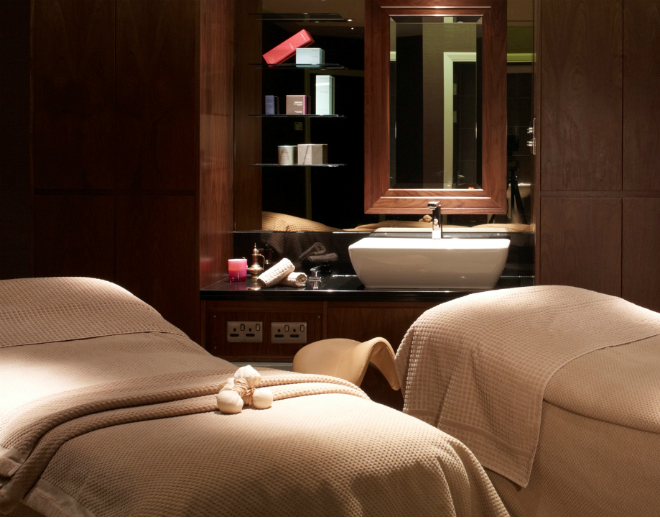Salon focus: Liz Holmes on apprentices
As part of our on going focus on apprentices in the beauty industry, Professional Beauty caught up with Liz Holmes, spa director at Rockliffe Hall, to discuss how trainees can fit into a large spa business and find out about her burgeoning initiative with Darlington College.
Professional Beauty: Can you tell me about what your apprenticeships involve?
Liz Holmes: We are a fairly new business, so it’s really just in the last 18 months that we’ve started to get involved. We’ve taken on two last year and two this year. They’ve generally completed their level 2 and then work with us while they’re completing their level 3.
We feel that we can offer a level of training so that when they finish their NVQ Level 3 they’re better than a Level 3, because a lot of what we teach is about customer care, about hosting clients and learning from the therapists that are currently working.
The two apprentices we had last year did very little in the way of actual treatments, certainly for the first six months. But one of the girls we have on at the moment is really exceptional. Though she’s only Level 2 we’ve taken her through some facial training with Comfort Zone and Murad, and the facials that she’s delivering are fantastic. We’re not offering her treatments as a cut-price service. It’s a full price facial because she’s so good and she’s so interested in it.
PB: Many businesses are put off by the idea that apprentices won’t be able to offer treatments, or even sit in on treatments. What do you think about that challenge?
LH: In a spa the size of ours there’s a lot of other things that they can do. We’ve got a salt room and a mud rasoul room, and the apprentices can take the clients into that room and explain to them in a professional way what the treatment is, what products they need to use and how to use them, and how they might be able to take those products home to continue that treatment.
Quite often those are the skills that a fully qualified Level 3 therapist that’s never been in the work place before won’t have. They don’t have the confidence to have that conversation with any kind of authority. There are an awful lot of things they can learn about service that’s above and beyond the treatment room.

PB: What challenges have you experienced?
LH: I think initially, it’s a little bit of a shock to their systems that a bell doesn’t go off somewhere and they can go for a break. If you’re with a client, you’re with a client. They need that little bit of flexibility when it comes to breaks and finishing time. In a school or college environment, they’re on the bus home by four pm, you’ve had a full hour for lunch, whereas they come here, they do an eight hour day with 45 minutes for lunch.
And it’s like show business. When you open that door and you’re client-facing, you’re on. You have to be smiling and positive, whereas in college it’s a bit more chilled. That’s the culture shock, but I think it’s better if that culture shock comes earlier. Apprentices are not full time; they’re maybe doing four days and one of the days is normally shorter because they’re at college in the evening, so it’s a bit more of toe in the water.
PB: What benefits have you felt?
LH: I think you win people’s hearts and minds. People come in to the business and they grow so quickly, but I’m really hoping in the long term these girls stay with us. I want to see them grow within the team.
This has really come about because of a close working relationship with Darlington College. Before the spa opened, I made partnerships with the local colleges, and the teacher at Darlington and I just hit it off because her standards were the same as mine and I really admired the way she ran the department.
She asked me to give a talk to the students a couple times a year, where I tried to help them understand about self-motivation and taking ownership of their own success. From those talks we kept getting staff coming through who’d enjoyed the talks and felt motivated to apply, so I thought a good way to formalise this would be to start the Rockliffe Spa Award for Beauty Therapy Excellence in partnership with Darlington College.
The idea is to help to raise standards within the college, but also help drive our recruitment, including recruitment of apprentices. We’ve got a team of between 18 and 22 therapists; that’s growing and we’re always looking for holiday cover or we have people on maternity leave. It’s important for us to have fresh people coming through.
PB: What are the benefits of partnerships such as the one you’ve forged with Darlington College?
LH: I wish when I’d left college I’d had access to someone in the industry, because I think I was so naïve and inexperienced. There was no one telling me that I’d need skills in teamwork, coping with conflict and coping in difficult situations. These days our clients are ever more discerning, more demanding and sometimes downright rude. I see girls trying to deal with this and sometimes they just don’t have the skill set.
At the spa, we focus a lot on communication, client solutions and selling. Once the therapists have had a bit more experience they realise that’s just about conversation and consultation, but I can see it's a challenge for colleges to teach those things.

PB: Would you like to see more businesses forming these kinds of partnerships?
LH: I think it’s the only way, because it’s fine trying to change government policy or standards in college, but there’s nothing like getting in to the college and helping them. These people do a good job, a hard job and I think as an industry we need to be proactive and help them.
We invite all the local students to come and have a spa day at the end of term. They come in groups of ten, stay for 2 or 3 hours, and it doesn’t cost us anything, but it gives them a glimpse of the type of career that they could go in to.
PB: Do you think the beauty industry does enough to encourage young people to become apprentices?
LH: I think the desire has to come from the individual. Incentivising is interesting because sometimes I think it drives people into a business their heart isn’t really in. They’ve got to want to do it.
We’ve got to stop thinking about hair and beauty as a second rate job for people who didn’t get their GCSEs. We should think about the skills we need from young people coming through. Quite often you feel like people have just drifted into it because the felt they run out of options. I don’t think we should be driving to train more people, but should certainly be driving the quality.
PB: What advice would you have for another employer looking to take on an apprentice?
LH: Interview as many as possible, because it’s important to be sure that it’s the personality that’s going to fit within your team. Get to know the heads in the colleges and get to know what drives them, because you want to recruit someone who’s come from a good background who’s getting the right information.

